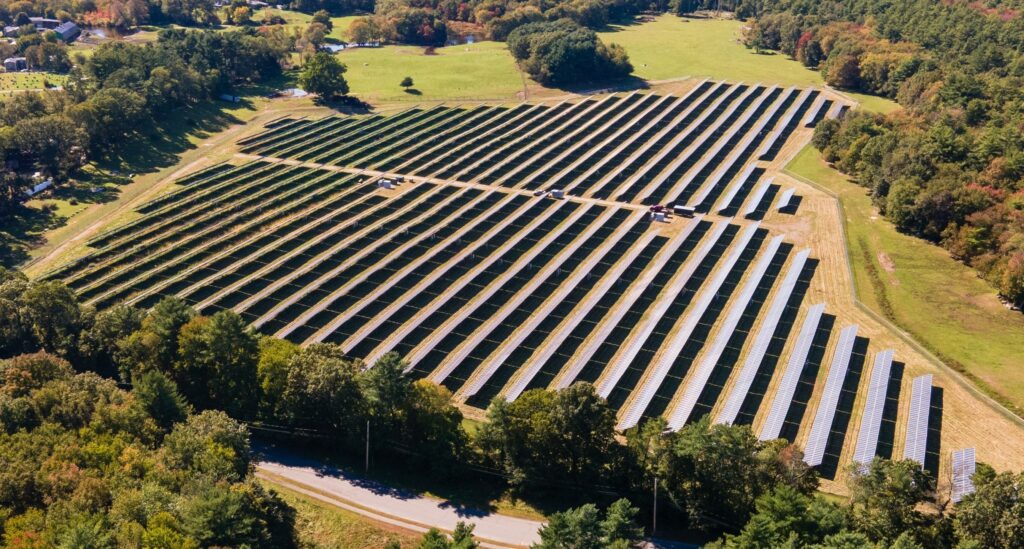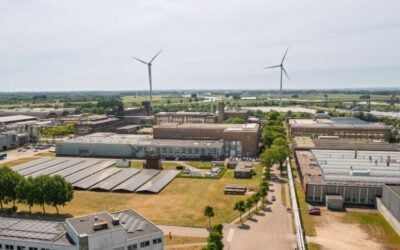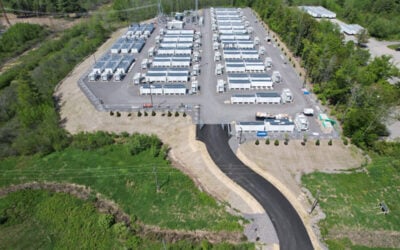
Private equity firm Syncarpha Capital has entered a partnership to co-develop solar and solar-plus-storage projects in New England, US, with Rosemawr Sustainable Infrastructure Management.
Syncarpha develops, owns and operates clean energy assets and is largely focused on community solar PV and distributed generation projects like commercial rooftop solar.
It has also been developing solar-plus-storage projects in Massachusetts for the last couple of years through a partnership with energy storage tech company Stem and another with a subsidiary of European energy major ENGIE.
The company said on Monday that its partnership with Rosemawr Sustainable Infrastructure Management, the sustainable infrastructure investment arm of investment firm Rosemawr Management, will put an initial US$100 million into project development.
Try Premium for just $1
- Full premium access for the first month at only $1
- Converts to an annual rate after 30 days unless cancelled
- Cancel anytime during the trial period
Premium Benefits
- Expert industry analysis and interviews
- Digital access to PV Tech Power journal
- Exclusive event discounts
Or get the full Premium subscription right away
Or continue reading this article for free
Projects covered will include community solar, distributed generation solar and solar-plus-storage. Shared community solar and energy storage infrastructure delivers critical support to the grid and long-term power savings for customers, Syncarpha Capital CEO Cliff Chapman said.
Rosemawr Sustainable Infrastructure Management managing partner Josh Herlands described Syncarpha as a “a longstanding, proven project developer, sponsor, and operator with industry-leading expertise in shared community solar projects, including customer acquisition and management”.
Syncarpha currently owns and operates over 150MW of solar in 10 US states.
Strong value proposition in Massachusetts, ISO New England territory
In terms of solar-plus-storage, Massachusetts remains the big opportunity within New England states due largely to the state’s clean energy policies, which have driven a wave of solar PV with battery energy storage systems (BESS) typically in the 5MWh to 20MWh range.
Drivers include market structures for two distinct revenue streams, the Clean Peak Standard and Solar Massachusetts Renewable Target (SMART).
SMART pays out incentives via utilities to projects that add dispatchable solar PV capacity to the energy mix, while the Clean Peak Standard mandates that a certain amount of energy on the grid at peak times must come from low carbon sources.
In a recent feature article on the US solar-plus-storage space for our quarterly journal PV Tech Power, a couple of industry commentators explained the value proposition in the Massachusetts market. Mary Cauwels, VP of product marketing for Syncarpha’s partner company Stem, gave a breakout of typical revenues associated with solar-plus-storage in Massachusetts.
Just over a third of revenues (34%) come from the energy market, Cauwels said, along with 27% from forward capacity markets, 15% from real-time reserves, 12% through the Clean Peak Standard and about 12% from frequency regulation.
Another participant in interviews for that piece, Mark Frigo, VP for energy storage at renewables developer Nexamp, explained that along with Clean Peak and SMART payments, the region’s grid and wholesale market operator ISO New England accepts storage as a capacity resource and frequency regulation asset. Massachusetts in particular is in a handful of leading US states along with California and New York to incentivise the progress of clean energy and associated energy storage, Frigo said.
However, looking at the US federally, Frigo also noted that solar-plus-storage assets are eligible for support via the investment tax credit (ITC). While standalone battery storage isn’t eligible for the ITC, batteries paired with solar are, as long as they charge directly from the solar for 75% of the year or more.
In the wider New England region, most of those opportunities can still be tapped, with ISO New England among the forefront of US regional operators to redesign market structures to accommodate energy storage – including adjusting rules ahead of implementation of FERC Order 2222 and FERC Order 841, by which federal regulator FERC ordered regional transmission organisations (RTOs) and independent system operators (ISOs) to allow behind-the-meter battery storage and other distributed energy resources (DERs) to participate freely in wholesale markets.
While in 2018 Massachusetts became one of the first US states to adopt an energy storage target of 1,000MWh by 2025, fellow New England states Connecticut and Maine also put in place state targets for energy storage deployment just over a year ago. Rhode Island recently enacted the US’ most aggressive state-level clean energy target policy, aiming to meet 100% of all electricity sales with renewables by 2033.





